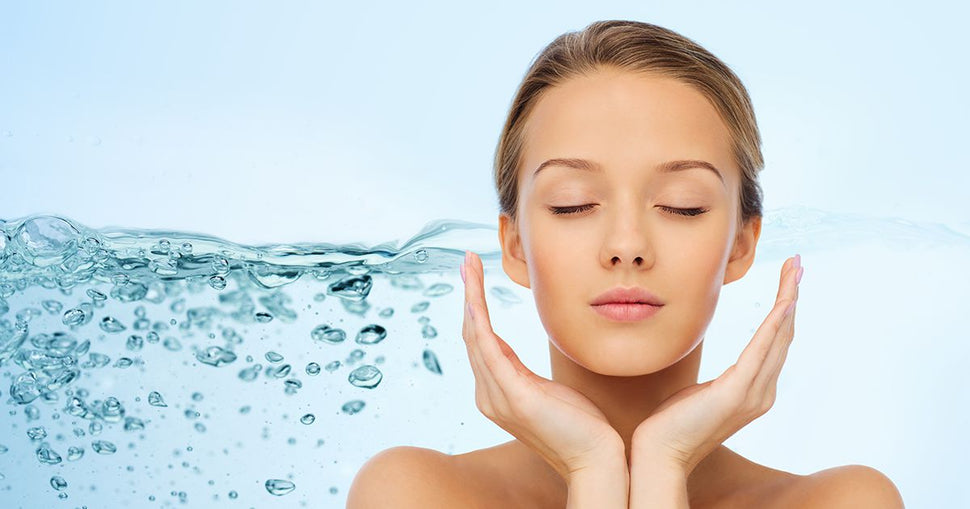How to keep your skin hydrated
22 Feb 2022
Everybody wants glowing, radiant skin, but most of us don’t know how to achieve this ideal.
The key to supple, healthy skin is sufficient hydration. This means that your skin should contain a good amount of water. Just like your body needs water to survive, your skin needs water to look and feel its best. A well-hydrated face looks youthful and luminous. It doesn’t matter if your skin is naturally oily, dry or a combination of the two, sufficient hydration is an absolute must.
Everybody wants glowing, radiant skin, but most of us don’t know how to achieve this ideal.
The key to supple, healthy skin is sufficient hydration. This means that your skin should contain a good amount of water. Just like your body needs water to survive, your skin needs water to look and feel its best. A well-hydrated face looks youthful and luminous. It doesn’t matter if your skin is naturally oily, dry or a combination of the two, sufficient hydration is an absolute must.
What causes dehydrated skin?
If you want to know how to keep skin hydrated, you have to understand how your skin loses water. You’ll find it hard to keep your face hydrated if you’re:
Not moisturising enough:
None of us take moisturization seriously. Moisturizing your face daily can feel like a chore, and sometimes, you may forget to apply a moisturiser altogether. But it’s actually important to apply an oil-based emollient product because it creates a seal on the surface of your skin and prevents water from escaping (1). The more water there is trapped in your skin, the more hydrated your skin will be.
Exfoliating too much:
Exfoliants are great for sloughing off dead skin. They help clear off dead skin cells and reveal fresh skin right under the surface, giving you a glowing complexion. However, over-exfoliating can rob your skin of its natural oils and leave your skin dry, dehydrated and flaky. So, make sure to use your exfoliating product only once or twice a week.
Not replenishing fluids:
Dehydration occurs when your body lets go of more water than it consumes. To keep your skin hydrated and feeling fresh, increase your water intake (2). You could also consume juices or green tea to improve hydration.
Symptoms of dehydrated skin
Dehydrated skin is often conflated with dry skin, but the two conditions are not the same.
Dry skin lacks moisture and oil, while dehydrated skin only lacks water. If you want to prevent your skin from feeling dry and rough, keep it hydrated and moisturised. Avoiding moisturiser will leave your skin even more dehydrated!
If you keep your skin hydrated, it will feel plump and soft. If your skin is dehydrated, you will experience a dull-looking complexion, itchiness, dark circles, fine lines, and wrinkling skin.
Severe dehydration affects not only your skin but your whole body. You can experience dry mouth, darker urine, dizziness and overall weakness. Extreme dehydration can become a medical emergency, so don’t wait for things to get that bad.
How to hydrate your skin
Consistently maintaining a hydrated face can seem like a challenge. But it’s actually really easy, if you practise the following things:
Drink water:
The best and easiest way to get hydrated skin is by drinking sufficient amounts of water. Health experts recommend drinking about 2 litres of water per day. If you have an active lifestyle or exercise regularly, consume more than this amount. Don’t let your water intake drop on colder days. Take the help of an app to get timely reminders to drink water.
Incorporate collagen:
Marine collagen is derived from aquatic sources and is considered to be one of the best sources of collagen (3). Collagen is a protein that maintains the structural integrity of your skin, ligaments, muscles, tendons and bones. As we age, our bodies produce less collagen, which can lead to dry, sagging skin. A collagen supplement can give your body a boost of this vital protein. Setu Skin: Youthful – Marine Collagen powder helps restore your skin’s hydration and elasticity, thereby reducing the formation of wrinkles, fine lines, and sun spots.
Moisturise:
Oilier skin types can use a water-based moisturiser, while drier skin types should go for an oil-based formula. It is also advisable to consume more foods that are rich in water, such as cucumbers, watermelons, celery, and oranges.
Use sunscreen:
Exposing your skin to the sun can lead to sunburns, which can reduce collagen and elastin (4), proteins that are vital for maintaining hydration. Using sunscreen is a good way to minimize sun damage and keep your skin hydrated. Choose a sunscreen with an SPF of at least 30+ to block 97% of the sun’s UVB rays.
Hydrating skincare products:
Well-hydrated skin can also be achieved with the help of topical skincare products that contain humectants. Humectants are ingredients that absorb water from the air or from deep within your skin. Good examples of humectants include hyaluronic acid, glycerine, panthenol, and urea.
No hot water:
When you wash your face or body with hot water, your skin is stripped off its natural oils and moisture content. Therefore, it’s always better to use cold or lukewarm water. When washing your face, try using cold water.
FAQs
1) How long does it take to get my skin hydrated?
With regular use of hydrating and moisturising products, you’ll start seeing the benefits of hydrated skin within a few weeks.
2) How do I know if my skin is dehydrated?
Check your skin’s hydration quotient everyday by pinching a small amount of skin anywhere on your body, holding it for a few seconds, and releasing it. If your skin springs back to normal immediately, it’s well hydrated. If it takes a few seconds, your skin is probably dehydrated.
3) What skin supplements does Setu offer?
Apart from Skin: Youthful – Marine Collagen, you can also try our Skin: Renew effervescent tablets, which are fortified with two powerful antioxidants: glutathione and vitamin C. Both these supplements have powerful detoxifying effects on your body and boost your skin’s health.

KNOW YOUR INGREDIENT
Curcumin, the primary component of turmeric, has potent anti-inflammatory properties that boost heart, brain and...
Know more

Tummy

Immunity

Skin

- Choosing a selection results in a full page refresh.
- Press the space key then arrow keys to make a selection.






